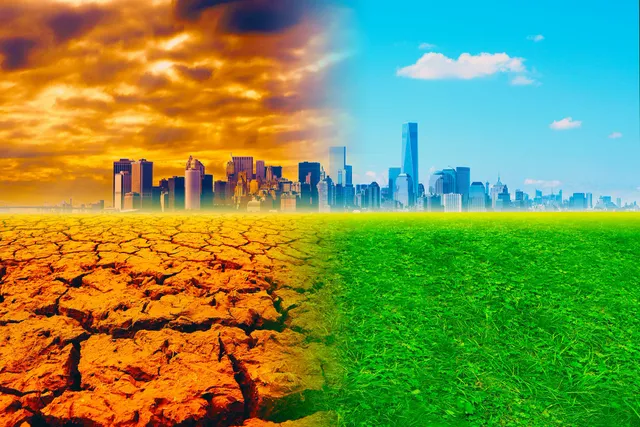IPCC Scientists Push for Policy Influence on Climate Crisis

Senior climate experts are advocating for a substantial revamp of the United Nations' Intergovernmental Panel on Climate Change (IPCC) due to their frustration over the sluggish pace of climate action.
Five key authors of IPCC reports shared with The Guardian their belief that scientists should wield the authority to propose policy measures and potentially oversee their execution by the 195 nations aligned with the UN Framework Convention on Climate Change (UNFCCC).
Their plea surfaced following revelations that the United Arab Emirates (UAE), as the host of Cop28, had intentions to forge oil and gas agreements.
Sonia Seneviratne, an IPCC vice-chair and coordinating lead author since 2012, emphasized, "At a certain point, we need to assert that if policymakers aim to achieve certain objectives, specific policies must be put into effect. As climate change worsens, it's increasingly challenging to remain policy-relevant without being directive."
She urged for scientists to advocate for reductions and phaseouts of fossil fuels, highlighting the disconnection between IPCC scientific findings and tangible actions on the ground, which baffles scientists.
Gert-Jan Nabuurs, a coordinating lead author on three IPCC reports, lamented the diminishing visibility of IPCC's critical, independent role. He raised concerns about countries exerting growing influence as the IPCC's influence recedes, citing their inability to prescribe policies as a significant hurdle.
The growing emissions trajectory, diverging from IPCC warnings about approaching climate tipping points, paints a worrisome picture. Emissions must plummet by 43% by the decade's end to align with the Paris climate accord's goal of capping global warming at 1.5C.
Julia Steinberger, a coordinating lead author on the IPCC's recent sixth assessment report, AR6, underscored the limitations imposed on the IPCC, preventing them from advocating urgent shifts away from fossil fuels. She criticized the self-imposed restraint among scientists, considering it counterproductive.
Over half of the atmospheric greenhouse gas emissions since 1751 have occurred post the Cop summits' initiation in 1995. The UNFCCC has presided over new emission highs almost every year since, with 2023 poised to follow suit.
Yamina Saheb, an AR6 chapter lead author, advocated for a system where scientists propose measures, governments commit to them, and subsequent evaluations track the progress achieved.
Moreover, Steinberger highlighted government interventions in altering language within reports, citing examples of lobbying efforts by certain countries for their industries' interests.
The level of control certain governments, like the UAE, possess over pivotal reports raises concerns among IPCC authors, who believe this jeopardizes viable climate diplomacy.
The IPCC's current modus operandi involves periodic extensive climate science assessments along with a concise "summary for policymakers." However, governmental representatives hold significant sway during the review process, often constraining scientists' input.
Criticism from certain diplomatic quarters in the US pointed to scientists' alleged bias and a focus on short-term recovery measures rather than long-term solutions, raising questions about the report's comprehensiveness.
Glen Peters, a lead author on emissions scenarios in AR6, advocated for the IPCC to pinpoint causes of emissions increases in specific nations and highlight successful mitigation pathways. However, instances of contentious information removal from reports, including statistics on emissions contributions from China and India, indicate ongoing challenges.
While some argue for the IPCC's evolving independence and the enhanced preparedness of participating nations, concerns linger about disparities in scientific representation and the influence of certain regions in shaping climate discourse.
The IPCC maintains its commitment to providing science to inform UNFCCC negotiations, stressing its role as policy-relevant but not policy-prescriptive.
Nevertheless, disparities in scientific access, representation, and control over report content persist, with calls for greater inclusivity and independence echoing among climate experts and scientists worldwide.
Nice post friend
Hello @deshtech your article has considered as an abuse on steemit, Copyright-infrigment content has been detected on your post. With immediate effect I would advise you to stop such abusive act by creating unique content on steemit. Try sourcing your images.